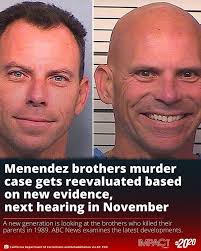
Introduction
The Menendez brothers, Erik and Lyle, became the center of a media frenzy in the early 1990s after the shocking murder of their parents, Jose and Mary Menendez. Their case not only raised questions about family dynamics, wealth, and violence but also highlighted critical issues concerning mental health and the legal system. The events renewed discussions about parental abuse and the impact on children, making it a relevant topic in contemporary society.
The Crime
On August 20, 1989, the bodies of Jose and Mary Menendez were discovered in their Beverly Hills home, having been shot to death in their living room. The luxurious lifestyle of the Menendez family, coupled with the violence of the crime, attracted immediate media attention. Initially, the case was mysterious; investigators struggled to find a motive. However, a major break in the case came in 1990 when Erik and Lyle became suspects after confessing the crime to a therapist during sessions, alleging years of severe abuse.
Trial and Media Sensation
The first trial against the brothers began in 1993, and it was marked by emotional testimony and an unprecedented media spotlight. The brothers claimed that their father had sexually abused them for years and that the murders were an act of self-defense against a lifetime of trauma. The defense strategy focused on psychological evaluations and the deep psychological scars inflicted by their parents, whereas the prosecution portrayed the murders as cold-blooded acts motivated by greed, aiming for the family fortune.
Outcomes and Public Impact
In 1994, the jury deadlocked, leading to a mistrial. A second trial in 1996 ended with both brothers being found guilty of first-degree murder and sentenced to life in prison without the possibility of parole. The Menendez brothers’ case has since been revisited in documentaries and television adaptations, becoming a staple in the true crime genre. It remains a focal point for debates on the impact of trauma, the reliability of confessions, and the interpretation of justice.
Conclusion
The case of the Menendez brothers is not just about the crime but invites consideration of the complexities of familial relationships and psychological abuse. The brothers’ narrative has sparked ongoing discussions about the legal system’s handling of cases involving claims of abuse, the differences between public and private perception of justice, and the factors that lead to extreme actions in desperate situations. As new generations grapple with these issues, the Menendez brothers’ story continues to resonate, reminding us of the delicate balance between wealth, power, and the enduring scars of abuse.



